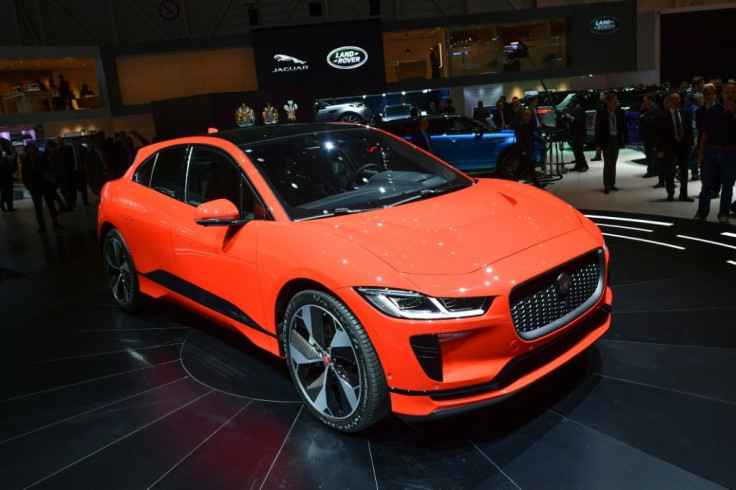Jaguar Car Brand To Go Fully Electric From 2025
Jaguar, the Indian-owned luxury car brand, announced Monday that it will produce only electric vehicles from 2025 as governments put pressure on the business world to slash carbon emissions and consumers demand greener products.
Jaguar Land Rover, owned by Mumbai-based Tata Motors, will invest ?2.5 billion ($3.5 billion, 2.9 billion euros) annually under its 'Reimagine' plan, which sees also the first all-electric Land Rover model hitting showrooms in 2024, JLR said in a statement.
Under its plan, JLR said it "will substantially reduce and rationalise its non-manufacturing infrastructure in the UK".
It did not say whether this meant job cuts were on the horizon, with chief executive Thierry Bollore simply telling a conference call that JLR was undergoing "massive digitalisation".
"By the middle of the decade, Jaguar will have undergone a renaissance to emerge as a pure electric luxury brand," the statement said.
Of its current seven-model lineup, Jaguar currently only has the compact SUV I-Pace as an all-electric vehicle.
JLR said it aims to achieve net zero carbon emissions across its supply chain, products and operations by 2039.
"At the heart of its Reimagine plan will be the electrification of both Land Rover and Jaguar brands on separate architectures with two clear, unique personalities," the company said.
"As part of this ambition, the company is also preparing for the expected adoption of clean fuel-cell power in line with a maturing of the hydrogen economy.
"Development is already underway with prototypes arriving on UK roads within the next 12 months as part of the long-term investment programme," the statement added.
Hydrogen is seen as a potential miracle fuel that could help the world's worst-polluting industries slash carbon emissions.
It is an abundant resource that gives off no emissions when it is burnt as fuel, although industry has yet to develop green methods to produce it.

Many major automakers already manufacture models using hydrogen fuel cells.
While regulatory moves are pushing automakers to shift to zero-emissions vehicles, consumers are also pulling them as seen by slumping demand for cars running on petrol and diesel.
Elon Musk's electric car giant Tesla Motors last month reported its first annual profit following a big jump in auto deliveries despite the upheaval of the coronavirus pandemic as it signalled confidence for more growth in 2021.
US car giant Ford meanwhile recently announced a dramatic acceleration of its investment push into electric autos and signalled deepening collaborations with technology giants on the increased digitisation of driving.
Ford's rival General Motors has set a target of having most of its fleet emissions-free by 2035 -- and auto manufacturers worldwide are on similar paths.
As for Jaguar Land Rover, Monday's announcement "is not so much an iconic moment", noted Peter Wells, professor of business and sustainability at the Centre for Automotive Industry Research.
Rather "this decision is a belated admission of the inevitable", he told AFP.
"The next four or five years promise to be highly challenging, and further large-scale industrial restructuring is likely," said Wells.
JLR is owned by Tata Motors, itself part of Indian conglomerate Tata Group.
Jaguar Land Rover on Monday said it would ensure "closer collaboration and knowledge-sharing with Tata Group companies to enhance sustainability and reduce emissions".
© Copyright AFP 2024. All rights reserved.





















